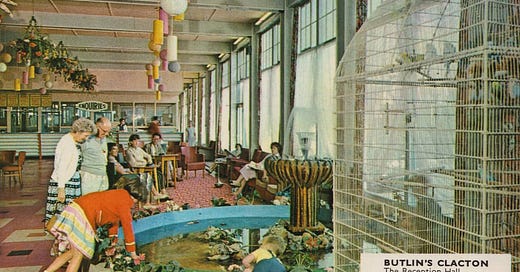Personal relationships can begin to frisson with energy as we navigate the holiday season, much like main street Christmas lights on the blink. Some of this feeling can be pinned on being in close quarters with people you might spend little time with throughout the year. The problem might be that you’re smack-bang in the middle of a group of guessers.
What is an ask vs a guess culture?
Ask culture
An ask culture is a communication style where people are more direct and comfortable asking for what they want or need. In an ask culture, individuals feel comfortable and empowered to make requests and are willing to accept a "no" answer if necessary. People in ask cultures tend to assume that if they need or want something, they should ask for it rather than expecting others to intuit their needs.
Guess culture
On the other hand, a guess culture is a communication style where people tend to be more indirect and hesitant in making requests or expressing needs. In a guess culture, individuals rely on social cues and subtle hints to convey their needs or desires rather than explicitly asking for them.
People in guess cultures assume that others will intuit their needs and desires and may feel uncomfortable making requests for fear of seeming presumptuous or selfish (see also my article on Tall Poppy Syndrome).
How did ask vs guess emerge?
Linguist Alan Fiske first introduced these terms, describing two approaches to social interactions and communication styles. Both ask and guess cultures have advantages and disadvantages, and individuals may adapt their communication style based on the context and the people they are interacting with.
Way back in 2008, this Ask Metafilter question was posted. It concerns a distant friend, who emails the original poster (OP) asking if they can stay with them during a NYC visit1. The OP is somewhat outraged and wonders why the friend “attempted to invite herself to stay with us”?
The whole thread is a wild read until Andrea Donderi steps in and educates the crowd. This response has become a cult classic, bringing ask vs guess into the popular psyche.
Am I an asker or a guesser?
If you’re still unsure, I find it helpful to think about the different cultures we’ve grown up in. Whether you’re spending time with your family of origin — yet you’ve spread your wings and grown your perspectives or, like me, in a relationship with someone from a different country. (I think we have had about five baffling conversations this year dedicated to the requirements of American Christmas cards.)
For example, you might enjoy spending time with your relatives, but you sometimes second-guess decisions and wonder how to make requests when you think the answer is a no. There may be anxiety involved — congratulations, you’re a guesser.
“Your boss, asking for a project to be finished early, may be an overdemanding boor – or just an Asker, who's assuming you might decline. If you're a Guesser, you'll hear it as an expectation. This is a spectrum, not a dichotomy, and it explains cross-cultural awkwardnesses, too: Brits and Americans get discombobulated doing business in Japan, because it's a Guess culture, yet experience Russians as rude because they're diehard Askers.” — Oliver Burkeman
However, remember, it doesn’t always hurt to ask; (US-based) researchers have found that people who ask questions are perceived as more responsive, an interpersonal construct that captures listening, understanding, validation, and care. Ask questions and appear more likeable.
So the question is: are you an asker or a guesser? What about your colleagues? Your family? Your culture? Ultimately, it depends on how well you know the people you’re engaging with and how comfortable you are. Perhaps you have a foot in both camps.
But whatever the answer, remember that no is a complete sentence, and “I’m sorry that won’t be possible” is also perfectly acceptable.
That’s it for Plein-Air this year; enjoy the rest of the season, and talk to you in 2024!
Amber
I always joke that you shouldn’t invite Kiwis to stay or visit anywhere because they will show up if they are ‘in the area’, which, er, could be an area the size of Europe. But, on the flip side, I think every New Zealander who offers an invitation to see them in Auckland genuinely means it.









